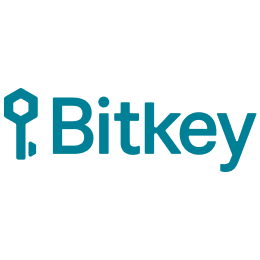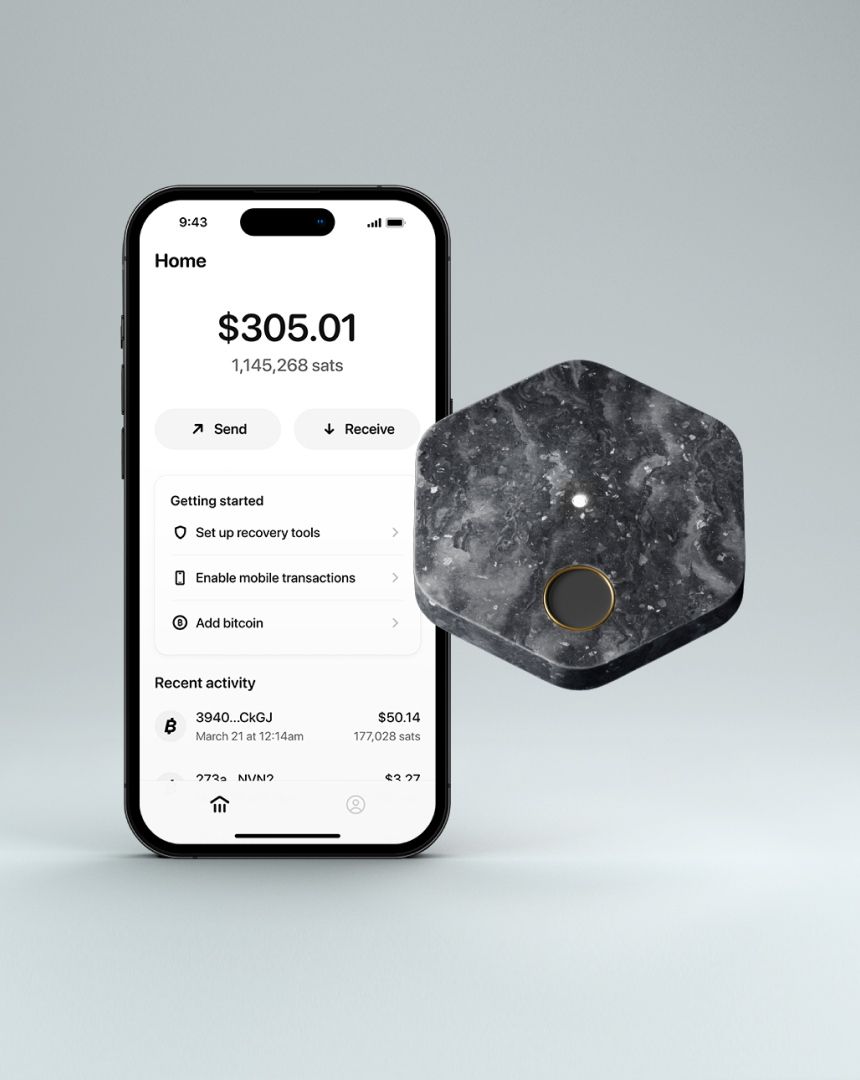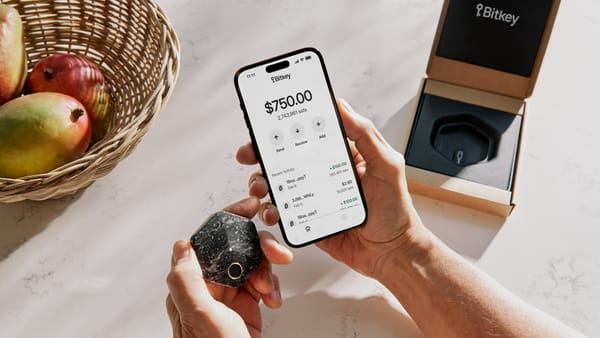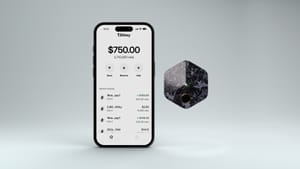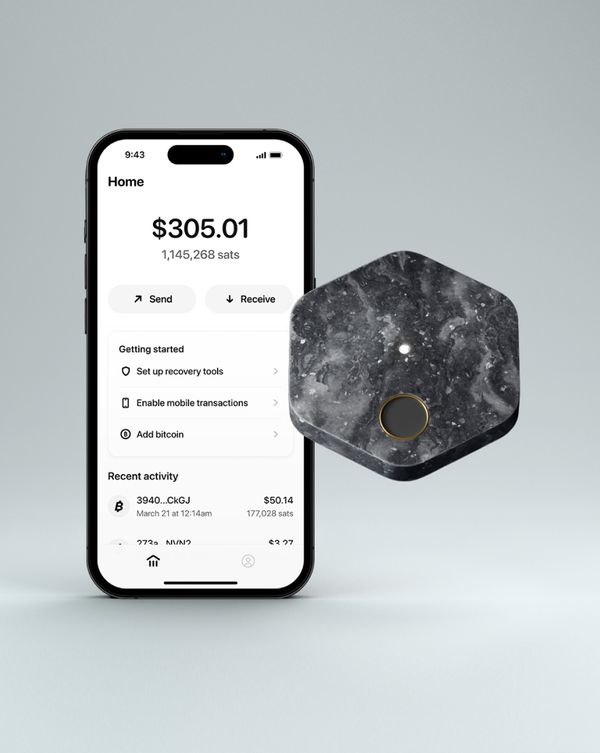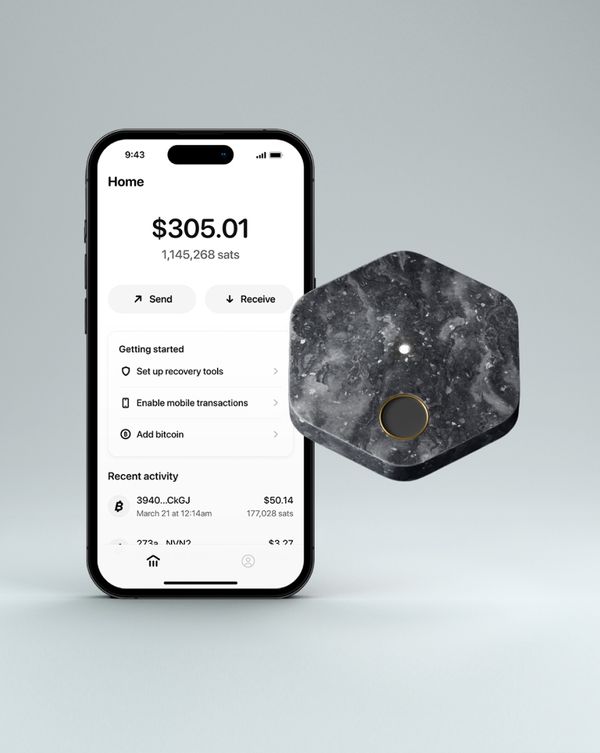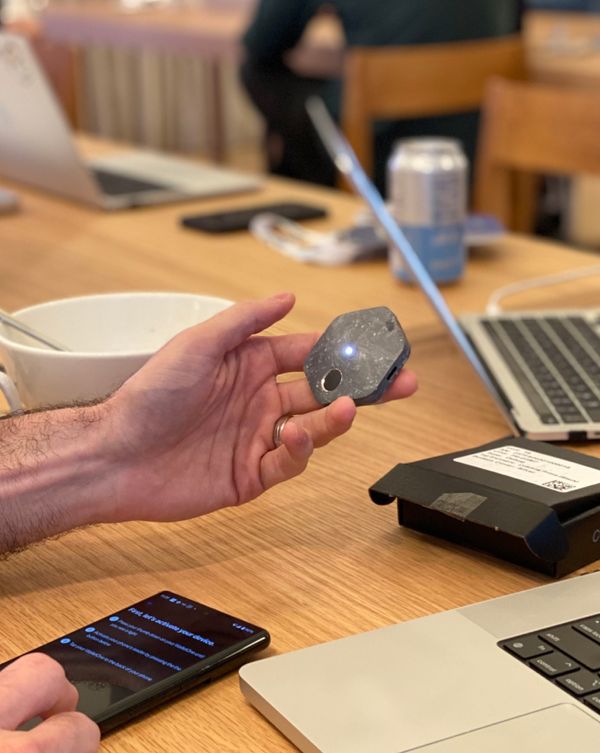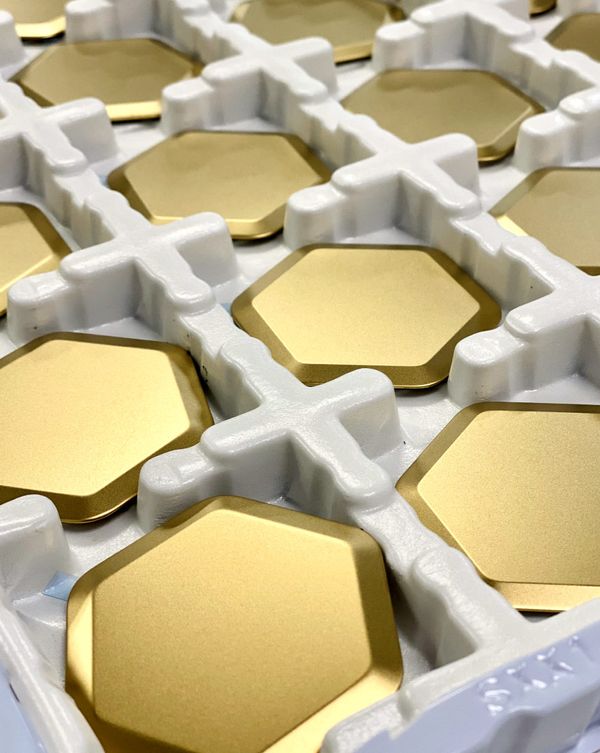Earlier this summer, we shared our initial vision for a Square-built hardware wallet and our decision to go for it. Now that we’ve begun work on this product, we plan to share our decisions, progress, and big questions along the way.
We’ll start with a quick reminder of why we’re here: our aim is to bring simple self-custody to a global audience.
Let's break that down. First, why self-custody? Second, why global? Third, what does 'simple' mean? Each of these has an answer rooted in our purpose of economic empowerment.
First, self-custody is a fundamental component of decentralization, one of the underlying principles of what makes bitcoin compelling. When people retain complete control of their coins, they don't need anyone's permission to use them. If people don't have a realistic option for self-custody, we should expect more and more of the limited global bitcoin supply to end up governed by a short list of custodial service providers -- effectively a new set of gatekeepers for the crypto economy. When we talk about empowerment, we're talking about empowering individuals, not banks and exchanges - and our first step is focused on self-custody.
Second, we want to enable everyone to access the growing crypto-enabled economy - not just wealthy residents of a handful of countries. For those with limited access to traditional financial services and secure ways to save, self-custody is about more than philosophy. Converting cash savings to digital assets that customers control can add safety and serve as a stepping stone for accessing financial services, on their own terms.
Third, in order for self-custody to be a realistic option for everyone, we need tools that are easy to use, safe, and inexpensive. Storing bitcoin shouldn't require buying a second phone, or anything close to that. We want customers to be able to use the computer they already take everywhere, while protecting their savings from the safety risks that come with a portable device or with cash under a mattress. From a software perspective, that means the same great native mobile experience we bring to Cash App and Square Point of Sale. From a hardware perspective, we think that means leaving out whatever we can -- starting with a display. Before we make that decision, though, we'll be reaching out to security experts across the community to make sure this is the right tradeoff for our customers.
From a system perspective, we think the right blend of safety and usability comes from having multiple ways to spend -- from our original thread, we want to provide customers quick access to funds “at [their] fingertips, spendable with phone-only permissions, while keeping the remainder under tighter, less available but more secure controls.”
To enable this, we’ll use the “multisignature” capability built into the bitcoin protocol, which allows us to specify a group of keys that can authorize transactions, as well as a minimum number of those keys that must be used for authorization. In our solution, we’ll have three keys: one in the hardware wallet, one in the mobile application, and one in Square’s servers, protected by the same world-class security we bring to the rest of our ecosystem. We’ll require two of those three keys to authorize any transaction; importantly, we’ll only use Square’s key to authorize transactions requested by the customer if either their hardware wallet is used or if the transaction amount is below a customer-configured spending limit. This will mean more capability in one wallet, and allows us to:
- Make small transactions easier for customers by involving only their phone and Square servers, while ensuring that their savings are protected by their hardware wallet;
- Help customers recover from loss of their phone, using their hardware wallet and Square servers;
- Maintain customers’ ability to move funds without Square, using their phone and hardware wallet -- but leave room for Square to help customers only when they want it
To turn all of this into reality, we're bringing together an experienced, diverse, and interdisciplinary team across hardware engineering, hardware operations, mobile and backend software, and business functions. We're focused on building a team whose different backgrounds and perspectives will strengthen our design and will ensure that we're understanding and building for the broad set of people whose needs we aim to address with this product. So far, we've hired Square employees from internal teams into a number of critical roles -- electrical engineering, manufacturing test engineering, mechanical engineering, product management, and design. We're also continuing to search for the right candidates in a handful of early roles:
- Business Lead
- Senior Software Engineering Manager
- Senior Hardware Engineering Program Manager (EPM)
- Global Supply Management Lead
- Senior Embedded Software Engineer
- Product Counsel
We’re actively working on the design of our hardware and experience, and will be sharing updates like this one periodically as we work to enable self-custody for a global audience. Thanks for engaging with our work - and if you have questions, feedback, or know someone we should be talking to about our open roles, you can reach us at bitkey@block.xyz.
